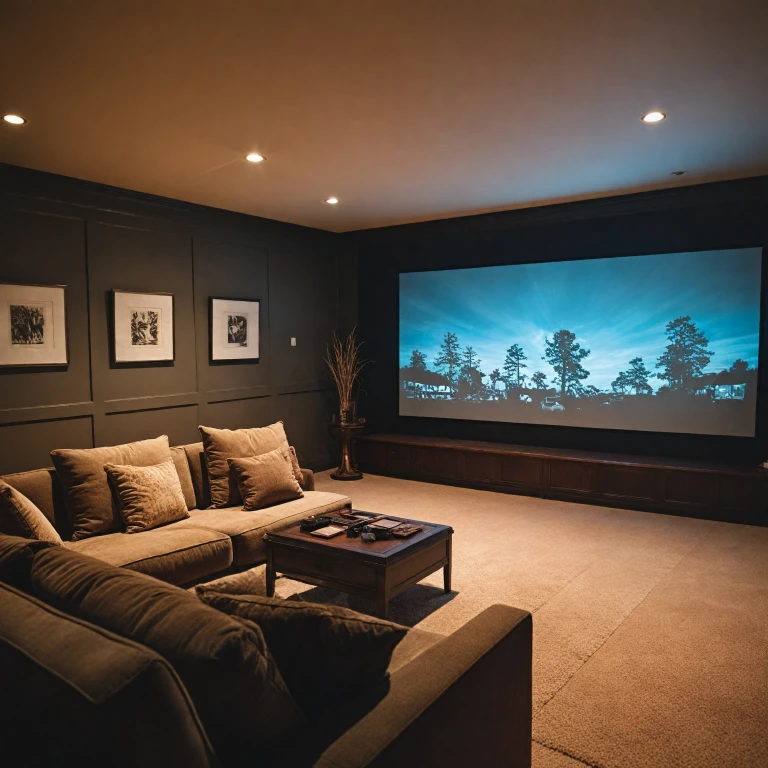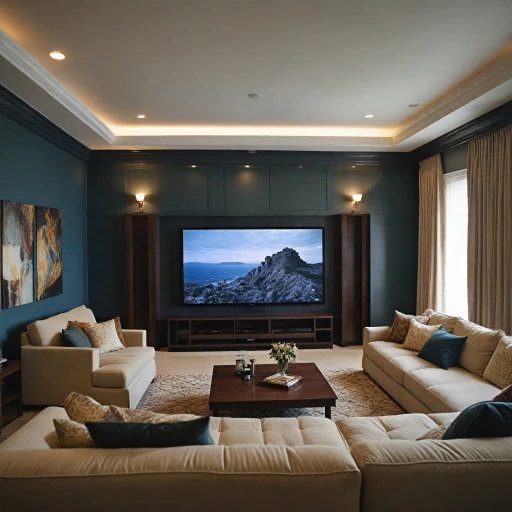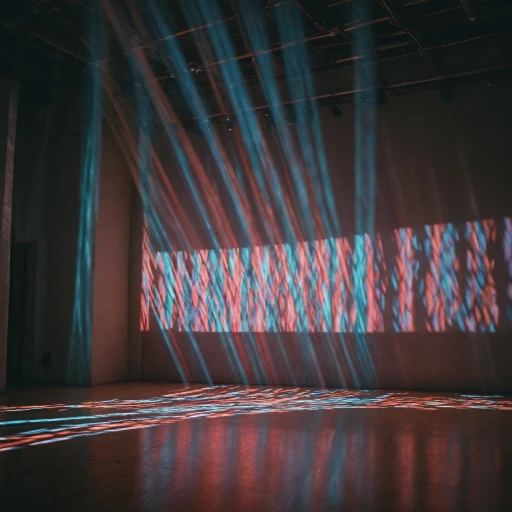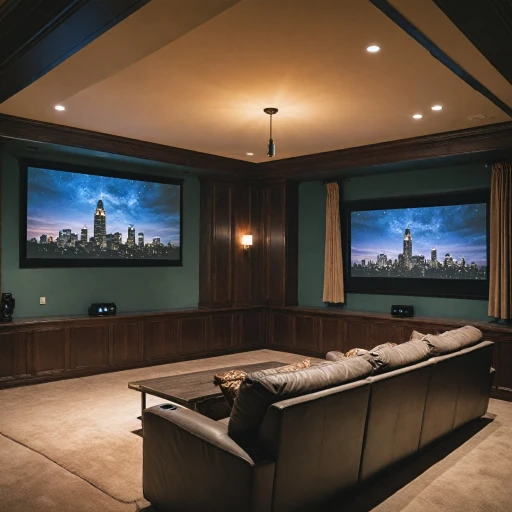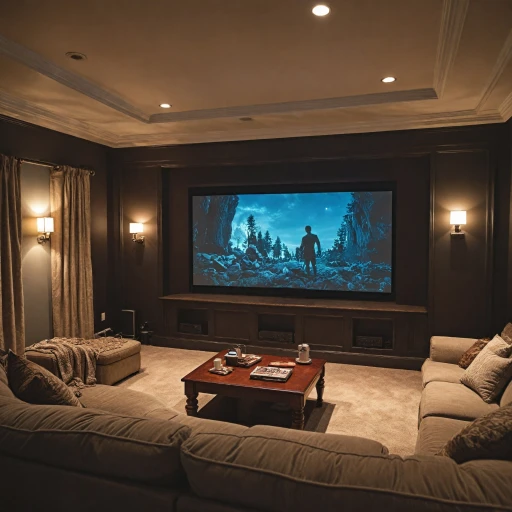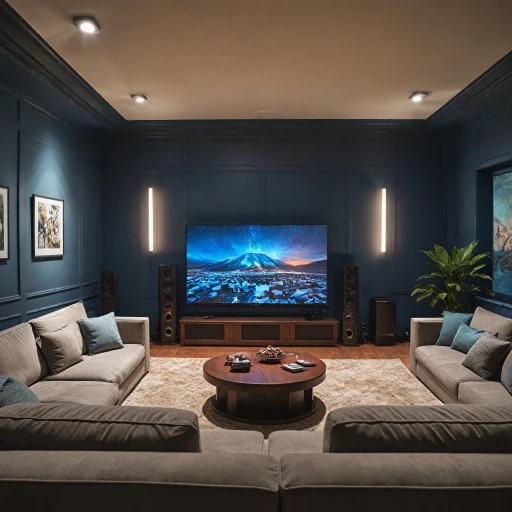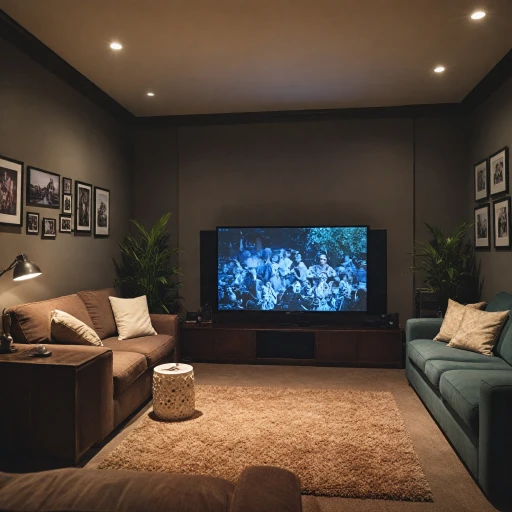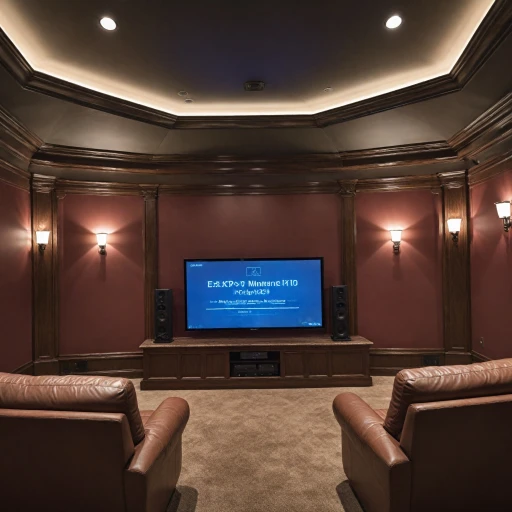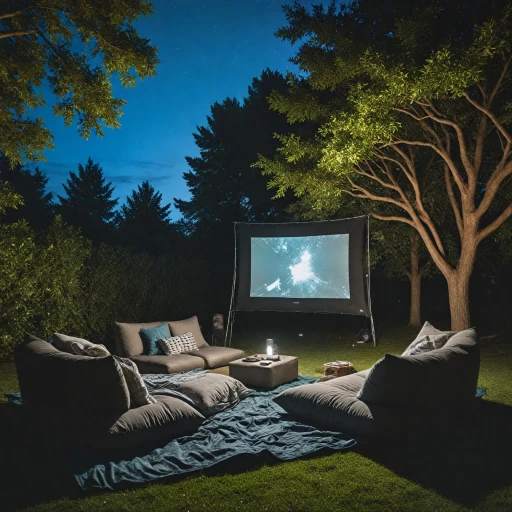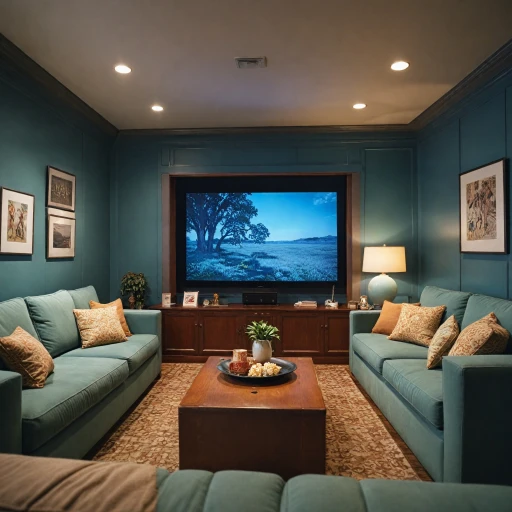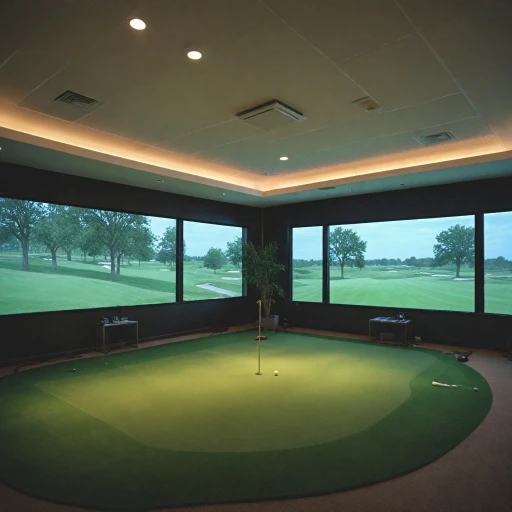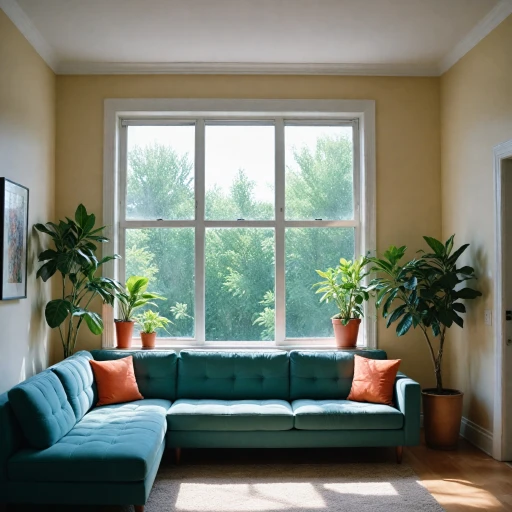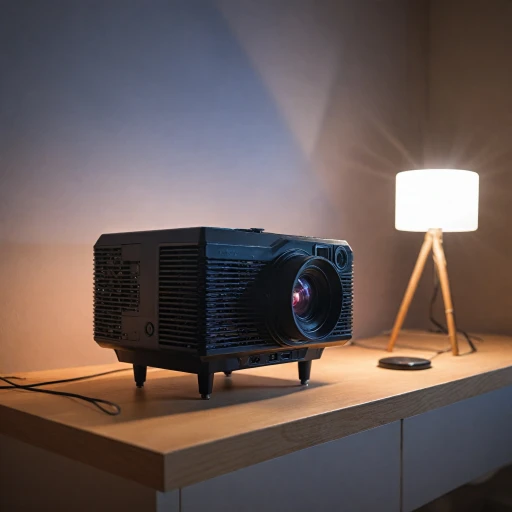
Understanding Brightness in Projectors
Decoding Brightness in Home Theater Projectors
Creating the ultimate home cinema experience hinges significantly on the right projector choice, especially when gauging brightness levels. Brightness in projectors is typically measured in lumens, a unit that indicates the light output. The more lumens a projector has, the brighter the image it can produce, even in less than ideal conditions. For a home theater setup, understanding the various brightness levels available is crucial. A projector with a brightness rating between 2,000 to 3,000 lumens—such as an Epson EpiqVision or BenQ model—can suffice for a dim to moderately lit room. If you're dealing with more ambient light, a projector with higher lumens might be necessary. Feature-rich laser projectors and ultra-short throw projectors often boast superior brightness with advanced light source technology that can enhance picture quality. Opting for a projector offering HDR or Dolby Vision can also result in a better and more vivid image. When considering projectors like the Epson Cinema or similar models, it's essential to look beyond lumens. Brightness needs to be balanced with other attributes, including throw distance, screen size, and room lighting conditions. This balance ensures the vibrant picture quality that transforms any living room into a mini-theater. Notably, understanding how brightness works hand-in-hand with other features will guide you in making informed decisions before purchasing, aiming for the best projector for your specific needs.Why Brightness Matters for Home Theaters
The Importance of Adequate Brightness for Home Theaters
In the quest to design a captivating home theater, one might overlook the role brightness plays in delivering a top-notch viewing experience. Whether you're using an Epson, BenQ, or other projector brands, brightness profoundly impacts the overall picture quality. This aspect becomes even more critical when dealing with various room conditions, from a dedicated theater room to a versatile living room setup. Bright projectors matter because they ensure clarity and vibrancy, even in spaces with ambient light. If your room isn’t entirely dark, you need a projector that can fight against external light sources, maintaining the integrity of the image. ANSI lumens, which measure brightness, are crucial here. The more lumens, the brighter the projector, giving you a cinema-like experience at home. Key Considerations for Brightness:- Room Type: In a dedicated theater with controlled lighting, a lower brightness projector might suffice. However, for a bright room, a higher lumens count is essential.
- Screen Size and Distance: A larger screen or longer throw distance will diffuse light more, requiring a brighter unit.
- Projector Type: Laser projectors and LCD (such as the Epson EpiqVision) can offer differing brightness efficiencies.
- Light Sources: Projectors utilizing laser light sources or high-quality lamp systems provide better illumination control.
Comparing Brightness Levels: What to Look For
Evaluating Luminous Output: Key Considerations
When diving into selecting the brightest projector for your home theater, it's essential to compare brightness levels effectively. Brightness is measured in lumens, which indicates the light output of a projector. There are a few critical factors you'll want to consider when evaluating which model is best suited for your needs.- ANSI Lumens vs. Lumen Count: While most projectors boast their brightness in lumens, ANSI lumens are a more standardized measure and can offer a better gauge when comparing models. This ensures you're getting an apples-to-apples comparison. Projectors like the Epson EpiqVision and BenQ models often use ANSI lumens to represent their brightness.
- Living Room vs. Dedicated Theater: If your projector will reside in a bright room with lots of ambient light, higher lumens are necessary to combat this and deliver a crisp, vivid picture. Ultra short throw and short throw projectors can also optimize space usage without sacrificing brightness. A living room setup may benefit from a projector with at least 2,500 to 3,000 lumens.
- Light Source: Laser vs. Lamp: Laser projectors, like those offered by Epson, generally provide a consistent and longer-lasting source of brightness compared to traditional lamp-based models. This can be desirable for maintaining high-quality image and color depth over time, crucial for achieving a cinema-like experience.
- Screen Size and Distance: Remember, the screen size and the throw distance significantly impact the effective brightness of the projector. For larger screens or if the projector is placed further back, a higher lumen output is necessary to maintain a bright and clear image.
Balancing Brightness with Other Features
Balancing Brightness: Understanding the Importance of Complementary Features
When it comes to selecting a projector for your home theater, one factor that can often be overlooked in the pursuit of high brightness is the integration of complementary features that contribute to the overall viewing experience. While achieving the perfect brightness—expressed in lumens or ANSI lumens—remains crucial, it's pivotal to consider how it interacts with other characteristics such as resolution, contrast ratio, and color accuracy.
One of the key elements to keep in mind is contrast ratio. This measurement indicates the difference between the darkest black and the brightest white the projector can display, crucial for deep, cinematic presentations. A projector with a high contrast ratio will excel in a theater projector setting, providing a richness to pictures often associated with the best projectors like those from Epson and BenQ.
Beyond contrast, the significance of features such as HDR compatibility and Dolby Vision cannot be understated. These technologies enhance the color and detail of the image, ensuring that you are getting a vibrant picture even in highly bright settings. For instance, the ultra throw or short throw projectors, such as the Epson EpiqVision and portable projectors, work well in diverse room settings by adapting seamlessly to various distances from the screen.
Picture quality also hinges greatly on factors like resolution. Whether you opt for Full HD or 4K, matching the projector resolution with the screen capabilities will enable you to enjoy the ultimate in image clarity. Brands like Epson Cinema offer models with laser technology that propel the light source further, presenting strikingly vivid images.
Finally, use of a laser projector over traditional lamp-based options provides not only a longer lifespan but also consistent brightness level. This, paired with a projector’s throw ratio—either ultra short or standard throw—determines how large and bright the image will appear even in a living room with ambient light.
In summary, when searching for the best projectors, remember that certain features can further boost your viewing experience beyond mere brightness. Balancing lumens with attributes like HDR and contrast ratio ensures that you’re maximizing the capabilities of your home theater environment, whether in a bright room or a dedicated cinema setup.
Top Picks for the Brightest Projectors
The Leading Projectors Illuminating Your Home Cinema
When it comes to choosing the brightest projectors for your home theater, a few models stand out in delivering that cinematic experience. These projectors not only offer impressive brightness but also balance other key features that add to your viewing pleasure.
Epson EpiqVision Ultra LS500: This laser projector is a favorite for its extraordinary brightness and ultra short throw capabilities, making it ideal for bright rooms. With its high lumens output, it maintains a vivid picture even with ambient light interference. The Epson Cinema technology ensures optimal image quality, enhancing both clarity and color accuracy.
BenQ HT3550: For those seeking a combination of brightness and color performance, the BenQ HT3550 is a remarkable choice. It offers high ANSI lumens and supports HDR and Dolby Vision, providing enhanced picture quality and an immersive cinematic experience in the comfort of your living room.
Epson Home Cinema 3800: Known for delivering robust brightness, this projector is particularly suited for those wanting a versatile solution for various room settings. It manages to project clear, bright images with a combination of excellent throw capabilities and effective light management.
When selecting the best projector for your home theater, consider these options as they excel in combining brightness with superb image quality. Acknowledge how elements like HDR, laser technology, and ultra short throw features can significantly improve the viewing experience, even in challenging light conditions. Always consider how brightness interacts with other specifications to ensure a balanced and satisfying cinema environment.
For those with specific room requirements, pay attention to ambient light and room layout as these factors heavily influence image clarity and enjoyment. A short throw projector can be the best solution for tighter spaces, while more spacious areas might benefit from a standard or ultra throw setup. Don’t forget to consider portable projectors if flexibility is a priority.
Tips for Maximizing Projector Brightness
Maximizing Your Projector's Brightness for an Optimal Viewing Experience
Achieving the best image quality from your home theater projector requires careful consideration of the brightness levels you read about earlier. While having a projector with a high number of lumens is essential, there are several tactics you can implement to further enhance brightness and make the most out of your investment.- Optimize Room Conditions: Transforming your space by reducing ambient light is crucial. Thick curtains or blackout shades can significantly improve your projector's performance, especially with ultra short throw and laser projector setups. A bright room can wash out colors and diminish the impact of brilliant features like Dolby Vision and HDR.
- Choose the Right Screen: Not all screens are created equal. Invest in a high-quality screen that complements your projector's brightness capabilities. Reflective or light-rejecting screens can make a difference in environments with unavoidable ambient light.
- Adjust Your Projector Settings: Tweak settings such as brightness and contrast for a better picture. Some models, including popular options from Epson and BenQ, offer presets tailored for different viewing conditions.
- Position Properly: Ensure that your projector is placed at an optimal distance and angle to the screen. Short throw and ultra short throw projectors are great for bright rooms with limited space.
- Utilize Advanced Features: Leverage features like 'Eco Mode' on your projector for energy efficiency and to prolong the life of your light source without a significant drop in lumens.
- Regular Maintenance: Keep your projector's lens clean and ensure the filters are free from dust, which could impede light output and affect overall picture quality.

